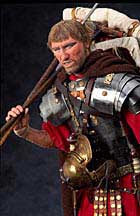 RALPH W. MATHISEN joined the faculty of the University of Illinois at Urbana-Champaign after 23 years at the University of South Carolina, where he was Louise Fry Scudder Professor of Humanities. He is a specialist in the society, culture, and religion of Late Antiquity.
RALPH W. MATHISEN joined the faculty of the University of Illinois at Urbana-Champaign after 23 years at the University of South Carolina, where he was Louise Fry Scudder Professor of Humanities. He is a specialist in the society, culture, and religion of Late Antiquity.
Professor Mathisen recent works include Barbarian Intellectuals in Late Antiquity, a study of the late Roman comedy The Querolus, and the life and letters of Desiderius of Cahors.
He has authored or edited ten books, including People, Personal Expression, and Social Relations in Late Antiquity, 2 vols. (Univ. of Michigan, 2003); Society and Culture in Late Antique Gaul. Revisiting the Sources (Ashgate, 2001) (with D.R. Shanzer); Law, Society, and Authority in Late Antiquity (Oxford Univ. Press, 2001); and Ruricius of Limoges and Friends: A Collection of Letters from Visigothic Aquitania (Liverpool Univ. Press, 1999), and has published over 60 scholarly articles including Valentinian.
He is Director of the Biographical Database for Late Antiquity Project, and a Fellow of the American Numismatic Society. He has also served in a number of capacities for the Byzantine Studies Conference, the American Philological Ass., the Ass. for History and Computing, the Ass. of Ancient Historians, the Classical Ass. of Midwest and South, the Soc. for Ancient Numismatics, the Society for Late Antiquity, and the U.S. National Committee for Byzantine Studies.
He maintains the Geography of Roman Gaul website: http://www.sc.edu/ltantsoc/geogmain.htm
He received his Ph.D. from the University of Wisconsin in 1979.
Contact information:
RALPH MATHISEN [ruricius@msn.com]
Department of History, University of Illinois
309 Gregory Hall, 810 S Wright ST, MC-466, Urbana IL 61801 USA
Phone: 217-244-2075 FAX: 217-333-2297






